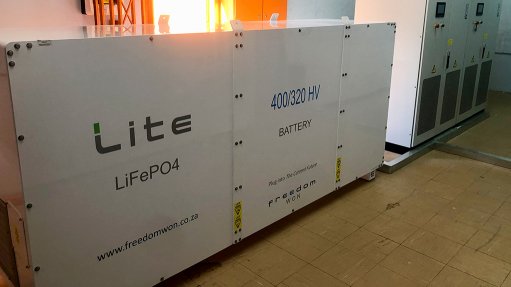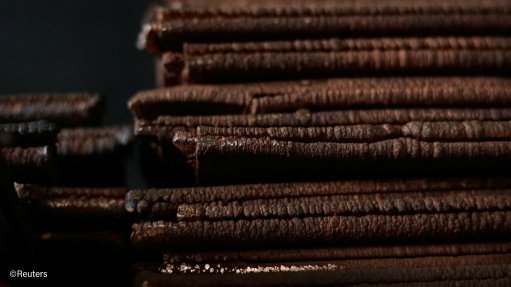No political will to deal with violent strikes, lawyer says
There is no political will to deal with the problem of violent strike action, law firm Cowan-Harper-Madikizela employment head Neil Coetzer has said.
“We should not be naïve. Even though there is an historical significance to the right to strike, there is nothing magical about it. There is no reason why the right to strike should trump the rights to life, property, freedom and security,” he said on the second day of the Metal Industries Collective Bargaining Summit in Johannesburg on May 24.
Coetzer urged that violence of any form should not be permitted in relation to strike action, and that any violence should immediately lead to the suspension of the strike, upon application to the Labour Court by an employer.
He recommended a form of stricter liability for unions, which would be triggered when strikes turn violent. Once triggered, the unions involved would become liable for fines.
“Too often unions wash their hands of the violence, claim ignorance or blame ‘rogue elements’ for the chaos,” Coetzer lamented.
He suggested that a union’s liability would fall away only where it is able to show a justifiable reason for not imposing the fine, such as assisting the employer in identifying perpetrators or assisting in any investigations into the violence.
Coetzer said that there was a well-known rule in labour dispute resolution that stated that where a relationship existed between an employer and a union, costs orders should not be made. However, he said that this rule had led to abuse, emboldening unions to act unlawfully safe in the knowledge that any approach to the Labour Court would be paid for by the employer.
“It’s time to revisit this rule. Unions who don’t abide by the rules should be saddled with costs orders, regardless of the existence of a relationship,” he said.
Speaking at the summit, which was hosted by the Steel and Engineering Industries Federation of Southern Africa, Coetzer said that his proposals should not be construed as “union bashing” or an attack on the right to strike.
Rather, he said that it was necessary to establish better frameworks and policies for holding people or institutions accountable for their unlawful actions.
“It is important to recognise that the violence occurs in the context of an employment relationship, in which employees owe a duty of good faith and is based on trust,” he said.
Moreover, Coetzer said that unions should not be allowed to escape censure by the courts and regulation from the legislature simply because the right to strike was constitutionally protected.
“There is nothing romantic about violent strikes. They are unlawful, traumatic for everyone involved, deeply concerning for our labour relations and a threat to the rule of law and our democracy,” he said.
Numerous speakers and delegates at the summit acknowledged that, unfortunately, violent strike action was not uncommon in South Africa, with many others also calling for harsher consequences.
“Violence during strikes is not new in South Africa. However, have we become numb to workplace violence and intimidation? Why have we allowed this situation to persist as long as it has?” Coetzer challenged.
He noted that, while the Labour Relations Act (LRA) brought many protections for unions and their officials, office bearers, members and shop stewards, many in those unions had become unduly emboldened.
“The labour court has done a reasonably good job of trying to keep errant unions compliant with the LRA. It is, however, constrained by the LRA,” he said, noting that even though the LRA has been amended several times since 1996, little emphasis was placed on addressing strike violence.
In 2012, the Labour Court implied that, for a strike to lose its protected status, the violence would have to be of such a nature as to render the strike dysfunctional, egregious or gratuitous.
“The flip side of this coin is that the Labour Court appears to have accepted that some level of violence should not only be expected, but accepted. This is problematic,” Coetzer said.
He noted that on December 19, 2018, the Code of Good Practice: Collective Bargaining, Industrial Action and Picketing was published.
The code, however, is soft-law, he said, intended to only provide practical guidance to those who wish to engage in collective bargaining or who seek to resolve disputes related to matters of mutual interest by way of industrial action, as a last resort.
The code is the product of engagement at the National Economic Development and Labour Council, following the conclusion of an accord on collective bargaining and industrial action by collectives of business, labour and government.
“This is the nub of the problem. The LRA provides little to discourage unions from engaging in violence,” Coetzer said, noting how violence impacts directly on the wage bargain ultimately struck.
“More violence equals a better settlement – which is a form of economic duress. And the ineptitude of the South African Police Service has exacerbated the problem,” he said.
Coetzer noted that many employers would rather concede to the irrational demands of violent protestors than risk lives and property.
“Only employers with deep pockets and elaborate contingency plans can absorb a violent strike. The resort to violence is indefensible in modern labour relations, in a democratic society founded on the rule of law,” he said.
While the Constitution guarantees the right to picket peacefully, Coetzer said that self-help was the antithesis of the rule of law, and that the right to fair labour practices should be applied in both directions.
“The problem is unlikely to go away or even be ameliorated without some form of legislative intervention,” he said.
Comments
Announcements
What's On
Subscribe to improve your user experience...
Option 1 (equivalent of R125 a month):
Receive a weekly copy of Creamer Media's Engineering News & Mining Weekly magazine
(print copy for those in South Africa and e-magazine for those outside of South Africa)
Receive daily email newsletters
Access to full search results
Access archive of magazine back copies
Access to Projects in Progress
Access to ONE Research Report of your choice in PDF format
Option 2 (equivalent of R375 a month):
All benefits from Option 1
PLUS
Access to Creamer Media's Research Channel Africa for ALL Research Reports, in PDF format, on various industrial and mining sectors
including Electricity; Water; Energy Transition; Hydrogen; Roads, Rail and Ports; Coal; Gold; Platinum; Battery Metals; etc.
Already a subscriber?
Forgotten your password?
Receive weekly copy of Creamer Media's Engineering News & Mining Weekly magazine (print copy for those in South Africa and e-magazine for those outside of South Africa)
➕
Recieve daily email newsletters
➕
Access to full search results
➕
Access archive of magazine back copies
➕
Access to Projects in Progress
➕
Access to ONE Research Report of your choice in PDF format
RESEARCH CHANNEL AFRICA
R4500 (equivalent of R375 a month)
SUBSCRIBEAll benefits from Option 1
➕
Access to Creamer Media's Research Channel Africa for ALL Research Reports on various industrial and mining sectors, in PDF format, including on:
Electricity
➕
Water
➕
Energy Transition
➕
Hydrogen
➕
Roads, Rail and Ports
➕
Coal
➕
Gold
➕
Platinum
➕
Battery Metals
➕
etc.
Receive all benefits from Option 1 or Option 2 delivered to numerous people at your company
➕
Multiple User names and Passwords for simultaneous log-ins
➕
Intranet integration access to all in your organisation


















